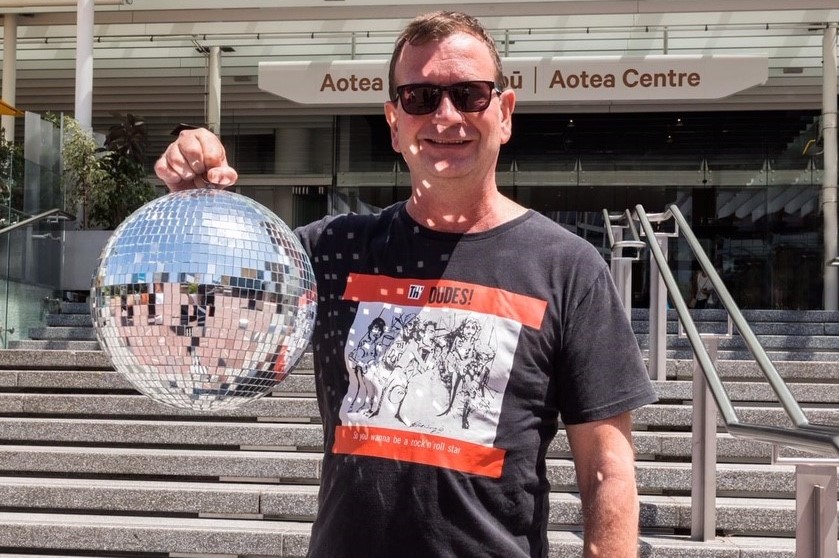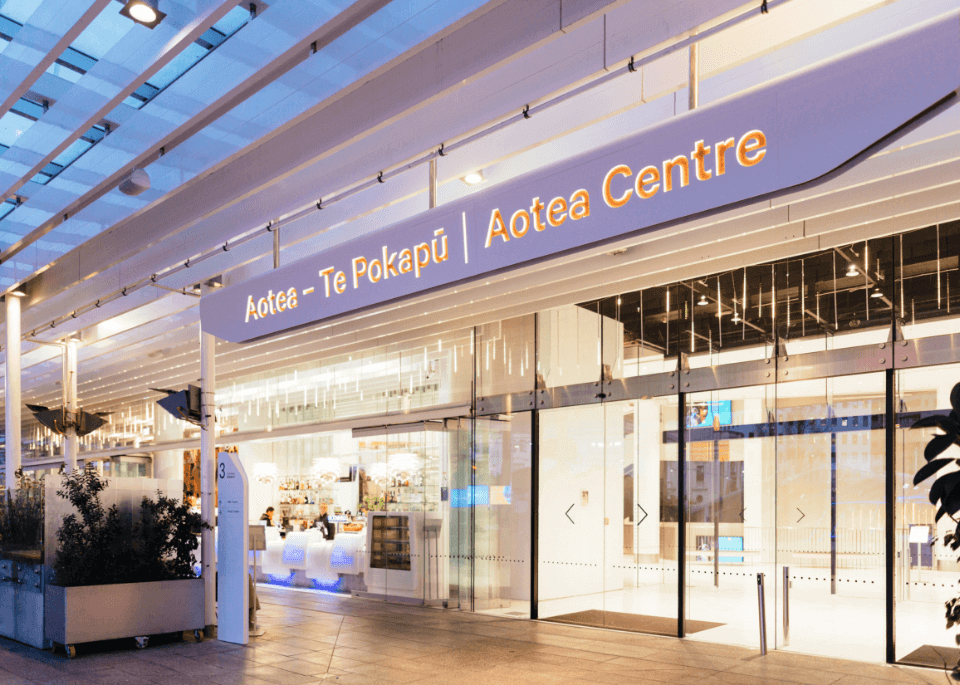This week we farewell Auckland Live and Auckland Conventions, Venues & Events director, Robbie Macrae

For almost two decades, Robbie Macrae has been a leader in live arts and entertainment in Tāmaki Makaurau Auckland as director of Auckland Live and Auckland Conventions, Venues & Events.
This December he leaves the organisation that has grown to become Aotearoa New Zealand’s largest performing arts platform and home to some of the country’s most iconic theatres and performance spaces including the Aotea Centre, The Civic, the Auckland Town Hall, and the Bruce Mason Centre.
The way he tells it, Robbie Macrae’s success as head of performing arts at what was The Edge, which became Auckland Live and is now part of Tātaki Auckland Unlimited rests on the two great pillars of Western culture: Shakespeare and Abba. And the Swedish pop stars came first.
“In early 2005 we partnered to bring over the Australian production of Mamma Mia!” Macrae recalls, as he prepares to leave the organisation he’s led for the past 19 years. “It was one of the first big shows we got back into The Civic. It did incredibly well; we sold about 200,000 tickets over 12 weeks, close to a sellout.”
It also generated a lot of money, which was destined to be absorbed into Auckland City Council’s consolidated revenue. Macrae had a better use for the cash.
“I had a vision that since we’d made all of this money from an international company with international artists and technicians, we should take some of that profit and invest it back into New Zealand performing arts.”
The result was the groundbreaking Stamp programme, which helped up-and-coming arts companies by subsidising technical, production and marketing costs, and providing some of the infrastructure.
Local artists duly catered for, Macrae looked outwards. Applying the time-honoured principle of go big or go home, he contacted the Royal Shakespeare Company, just on the off-chance.
“I thought, I may get something back, I may not. Two days later I get a phone call: ‘Would you be interested in Ian McKellen playing King Lear?’ That’s when you fall off your chair and go, ‘Of course’.”
It was the start of a successful international programme that now includes major festivals and mega-shows, alongside a strong commitment to local and public programming.
Macrae believes it’s important to serve all parts of the sector. While audiences love the blockbusters, local performing artists fear that major shows don’t hire locals, which prevents Kiwis from developing the skills to mount similar productions.
Macrae notes that production costs mean you need more than skill to stage a Mary Poppins, and that a show doesn’t have to be lavish to be good. But, he adds, all musicals start somewhere, and Macrae sees Tātaki Auckland Unlimited playing a future role in the early development of new works.
“Most of them start in workshops, so you need workshop spaces. Once you’ve got workshop spaces, people can go through and look and you can invite potential investors in and things can go from there.”
When he talks about workshops, Macrae’s thinking of the new performing arts space for which plans are underway at the rear of the Aotea Centre. Workshops are part of the long-wished-for arts precinct, which will bring together artists of all stripes, allowing them to mix and mingle and create and interact with each other and the public, all in one space. It’s a project Macrae has personally championed.
“The arts precinct, with the Aotea Centre at its heart, will be the keystone,” he says. “We have performances between 7pm and 11pm but what happens during the day? So we need activities around education, professional development, creativity, people having fun and people just enjoying being here. Then we have Q Theatre, The Basement, the art gallery, The Civic, and suddenly there’s a reason for people to come to midtown Auckland. The biggest thing is giving people lots to do.”
It's the sort of project that requires vision – and significant funding. Even with its surpluses, Tātaki Auckland Unlimited could not afford to create the precinct without support. Macrae has definite views about arts funding.
“Government bodies are essential for performing arts,” he says. “You might earn 40 per cent of your revenue at the box office. You’ve got to find 60 per cent somewhere else. Thirty per cent might come from government, 30 per cent might come from business or philanthropy or someone who just believes in you.”
We don’t have a particularly well-developed tradition of giving to the arts; what does Macrae think we need to do to draw more from private or business donors?
“I could be very glib and say we need oil wells, like in Texas. Philanthropy generally comes from very wealthy people and New Zealand doesn’t have a lot of very wealthy people in the same way you might have in America or Europe. We’re incredibly grateful for the individuals we do have, the Dame Jenny Gibbs of this world, but I think we need another gold rush or something. Or we look at new technologies – if you’re making millions from your video game, it’d be great if you put some money towards art performances too.”
If the arts precinct is Macrae’s legacy, his gift to the city, he’s also proud of leading the transition from The Edge to Auckland Live in 2010.
“Between 2010 and 2020 we grew our revenue by more than 100 per cent. That’s wonderful for Auckland because the more we earn, the more we can invest back into the infrastructure and ecology of Auckland performing arts and entertainment.”
Macrae is particularly pleased with the refurbishment of the Aotea Centre, too, a massive undertaking. He cautions, though, against treating the organisation as if it’s a landlord, concerned only with glass and concrete.
“It’s very important that we remain very strong in performing arts and that there isn’t a feeling we’ll go into a venue-for-rent kind of model,” Macrae says. “Yes, we can put on wonderful performances; yes, we can engage with people; yes, we can do all the education, development and training, but passion and commitment are at the heart of what we do.
“We do a lot more than just run facilities; we make magic happen.”

